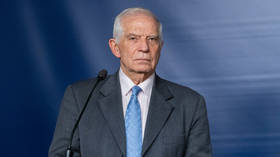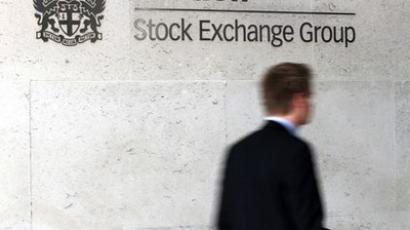Emerging markets get head start from analysts' outlooks

The emerging markets have shown a progressive move forward, improving their financial and industrial markets with further hopes of attracting investors’ attention.
Concerning the analytical reports and future economic outlook, the BRIC countries keep on driving their economies upwards, however the crisis has taught market players to look twice before cashing-in.The world economy is crawling out of the crisis. Nevertheless, global financial institutions predict a slow down in the rate of recovery, but still forecast solid growth this year and next, with developing countries contributing almost half of global growth.The World Bank tagged the Russian economy as having an impressive performance over the last year, but the forecast should be updated, and this year Russian economic indicators will surge and a few will soar, including inflation figures Russia is among nine countries which received the majority of capital inflows in 2010. The World Bank report raises concerns over whether sufficient capital controls are being implemented to prevent overheating in emerging markets.According to Citigroup’s forecast, Russian equities will outperform Brazilian as the global recovery spurs a 30% rally in the Emerging Markets Index this year.Emerging markets promise to be the main driver of global economic growth in 2011,according to the latest report from the World Bank. However the Bank warns that investors looking to cash-in on the growth story could create an asset bubble. Deutsche Bank's chief economist in Russia, Yaroslav Lissavolik, believes the risks are real. “Asset bubbles are always a threat. They are always possible, especially after the very pronounced growth that we have seen in Russian equities gains in 2009-2011. Of course, this is something that is likely to be at the back of the mind of Russia’s policy makers, especially after the effect of QE2 coming from the US,” says Lissavolik.Yury Volov, an equity analyst at Moscow Bank, recommends looking at international rate levels, meaning that this is a major concern to prevent another wave.“The economy is alive. It gives feedback on every financial or political action and in this case investors and market participants have to be aware of various feedback and bubbles of the economy. Nowadays, we can see a positive sign for productivity growth and financial balance, but as long as the international bank rates are on their historical minimum, we should keep in mind that cheap money does not mean easy money, and the investors need to count twice as well as companies must avoid fraud and provide transparency,” Volov advises. Igor Prokhaev from Troika-Dialog says there are a number of factors that could drive the Russian markets higher.“The oil price will be very important and global markets as well as international markets. American markets expecting the 4 quarter results if these results are good I think in a bit longer view probably we will see some relocation from fix income instruments as an asset class into equities. I think we will see global growth in equities first of all and strong commodities growth that will provide a very good investment environment in Russia” The commodity sector will remain the most attractive in 2011 and infrastructure companies in emerging markets may be of huge interest, depending on market conditions added Volov“I leave the forecast for oil, gas and other commodities to lure more and more investors in 2011 – it is inevitable. Additionally, on the back of state modernization and support programs and strategic development of other infrastructural sectors such as telecommunications, transport and pharmaceuticals – these sectors may attract the bulk of strategic investors if the business conditions are favorable,” he believes.














